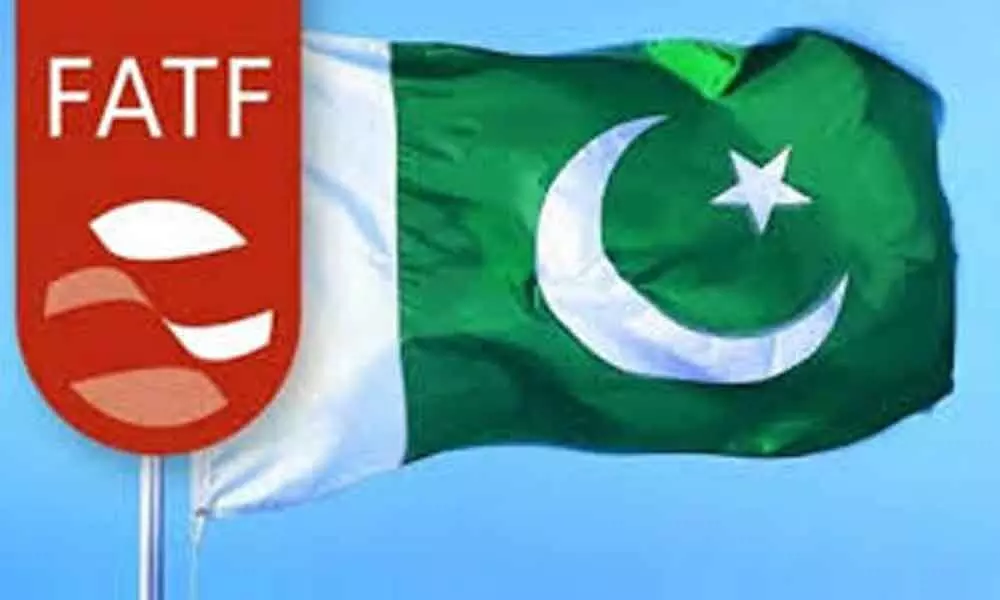Pak should purge its terror elements at once

Pak should purge its terror elements at once
Pakistan will continue to remain on the grey list of the Financial Action Task Force (FATF) for failing to comply with six of the 27 mandates to check terror funding in the country, the global terrorist financing watchdog said recently
Pakistan will continue to remain on the grey list of the Financial Action Task Force (FATF) for failing to comply with six of the 27 mandates to check terror funding in the country, the global terrorist financing watchdog said recently.
"Pakistan needs to do more on checking terror funding," FATF president Marcus Pleyer said, adding that the country must "impose sanction and prosecute those involved in terror financing". The Paris-based FATF had placed Pakistan on the grey list in June 2018 and issued the action plan. The agency's International Cooperation Review Group has acknowledged that Pakistan had complied with 21 points on the plan.
In February this year, the FATF gave Pakistan a four-month grace period to complete its 27-point action plan. The deadline was June, but the agency extended it again due to the postponement of its plenary because of the Covid-19 pandemic.
Pakistan's spot on the list and its progress with respect to the action items was being reviewed at a plenary session of the FATF, which began on October 21 and ended on October 23. While the country has not exited the FATF grey list, it has managed to avert being blacklisted for now.
In August, seeking to wriggle out of the grey list, Pakistan had imposed financial sanctions on 88 banned terror groups and their leaders, including 26/11 Mumbai attack mastermind and Jamaat-ud-Dawa chief Hafiz Saeed, Jaish-e-Mohammed chief Masood Azhar and underworld don Dawood Ibrahim. It won a three-month extension to complete all 27 items because of the Covid-19 pandemic.
In response to a question, Pleyer said that the FATF members had decided "by consensus" that Pakistan needed to work on the six outstanding items before the body would consider paying an "on-site visit" to review Pakistan's progress on the ground. Answering another question, he said that after the on-site visit by an assessment team, the FATF body would review Pakistan's case in its plenary meeting and decide if the country should be taken off the 'grey list'.
Meanwhile, an advisory posted on the watchdog's website announced that Iceland and Mongolia were "no longer subject to the FATF's increased monitoring process". This creates problems for Pakistan in securing and moving funds internationally. The FATF places those countries on its grey list which are not taking measures to combat terror funding and money laundering. Only Iran and North Korea currently belong to this list.
This is not a daunting task as Pakistan claims to be well on its way to addressing most, if not all, of these issues related to money laundering and terror financing. It is unlikely that the FATF will issue a "call for action" right away.
Still, PM Imran Khan's inability to pull his country out of the grey list is also seen as a failure of his diplomacy since he needed the support of 12 countries to back up the narrative that Pakistan should be given a reprieve since it was on its way to fulfil its commitments to fight terror funding.
Pakistan has, as usual, blamed India, for its plight, but then it does not help it in any way. Instead it has to clean its stables fast.














